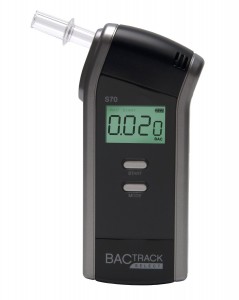 Once you are arrested and taken into custody, the police will read you your Refusal Warnings and then ask you to blow into an intoxilyzer. Like the breathalyzer, this machine will read your BAC. There is the obvious question: Should one refuse to take the breathalyzer test and what are the consequences of a refusal?
Once you are arrested and taken into custody, the police will read you your Refusal Warnings and then ask you to blow into an intoxilyzer. Like the breathalyzer, this machine will read your BAC. There is the obvious question: Should one refuse to take the breathalyzer test and what are the consequences of a refusal?
Negative Consequences of A DWI Refusal
New York law is very strict on refusals. Our Long Island DWI Attorneys can tell you that if you refuse to blow, your license in New York will be revoked for a year (subject to a Refusal Hearing with the Department of Motor Vehicles). It is critically important to recognize that even if you are ultimately acquitted of the DWI, your refusal is not dismissed.
Additionally, many District Attorneys will take a hard-line stand and will be reticent to negotiate and pleas bargain a defendant who refuses the test. Therefore, if you are close to or slightly above the legal limit in a case where there would normally be a non-criminal offer, refusing could hinder your ability to get such an offer.
Benefits of A DWI Refusal
If you do not provide a breath sample, then the evidence of your intoxication will be the any video of you by law enforcement and the testimony of the officers based on observation and field sobriety tests without scientific evidence. The answer to the question of refusal is largely a function of the results of your field sobriety tests and the observations of the arresting officer. If you are clearly visibly intoxicated (i.e., stumbling, vomiting, or slurring your speech) then your failure to blow will be less valuable.
The Answer: Refusal or Blow
The answer is largely dependent on each individual case. If you are extremely intoxicated and you might blow a .18 (Aggravated DWI) or even higher, then maybe you should not blow. If you cannot afford to have your license revoked because you must have it for work, maybe you should blow (there will be a temporary suspension regardless). If you are no patently intoxicated based on field sobriety tests, then failing to blow may strengthen your case at trial by not providing any scientific evidence to prosecutors. At the same time, however, not blowing may also make obtaining an offer much more difficult.
The Bottom Line:
Rely on an experienced Nassau County DWI Attorney to guide you through this difficult process for you and your family. Contact Michael Alpert, Esq. today by calling 516-280-7288.